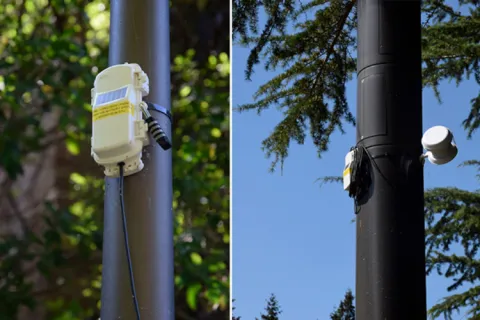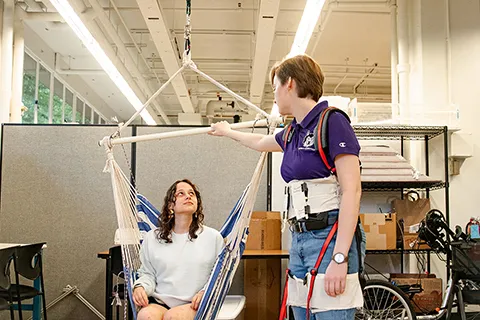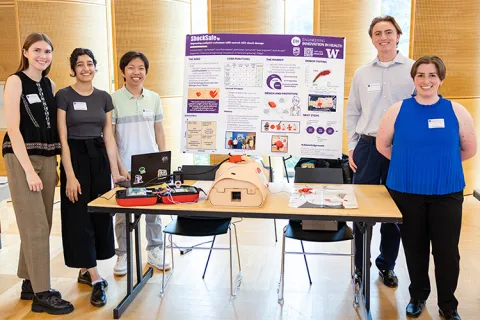Pacific Northwest National Laboratory (PNNL)
Thermal Gradient Energy Harvesting Device for Powering Unmanned Underwater Vehicles
There is a demand for self-powered unmanned underwater vehicles (UUVs) suitable for long-term deployments for ocean environmental monitoring. Thermal gradient energy-generation technologies for powering UUVs or autonomous sensing systems in the ocean are mainly in the research development phase, and further research related to small-scale ocean thermal gradient energy systems is needed. Phase change materials can be used to power a buoyancy engine and generate electricity, but currently have low efficiencies. This student team developed conceptual solutions for increasing the efficiency through improved mechanical architecture and design, and a benchtop prototype design for demonstrating the working principle and performance of a novel PCM-based thermal energy harvesting system that has the potential to improve energy harvesting efficiency over traditional PCM-based designs.
Faculty Adviser
Eli Patten,
ME Capstone Director,
Mechanical Engineering
Students
Cali McFarland
Camila Kang
Ethan Simpson
Rivan Patel
Related News

Fri, 09/20/2024 | UW Civil & Environmental Engineering
Smarter irrigation for a greener UW
A new project combines satellite data with ground sensors to conserve water and create a more sustainable campus environment.

Mon, 09/09/2024 | UW Mechanical Engineering
Testing an in-home mobility system
Through innovative capstone projects, engineering students worked with community members on an adaptable mobility system.

Mon, 08/19/2024 | UW Mechanical Engineering
Students strive to ensure accurate AED shock dosage
ShockSafe, developed by students with the help of mentors from Philips and Engineering Innovation in Health (EIH), can distinguish between children and adults during cardiac arrest emergencies.

Wed, 08/07/2024 | Snohomish County News
Snohomish County, University of Washington partnership boosts efficiency in enterprise scanning center
UW Industrial and Systems Engineering Capstone Project set to save Snohomish County over $40,000 annually.